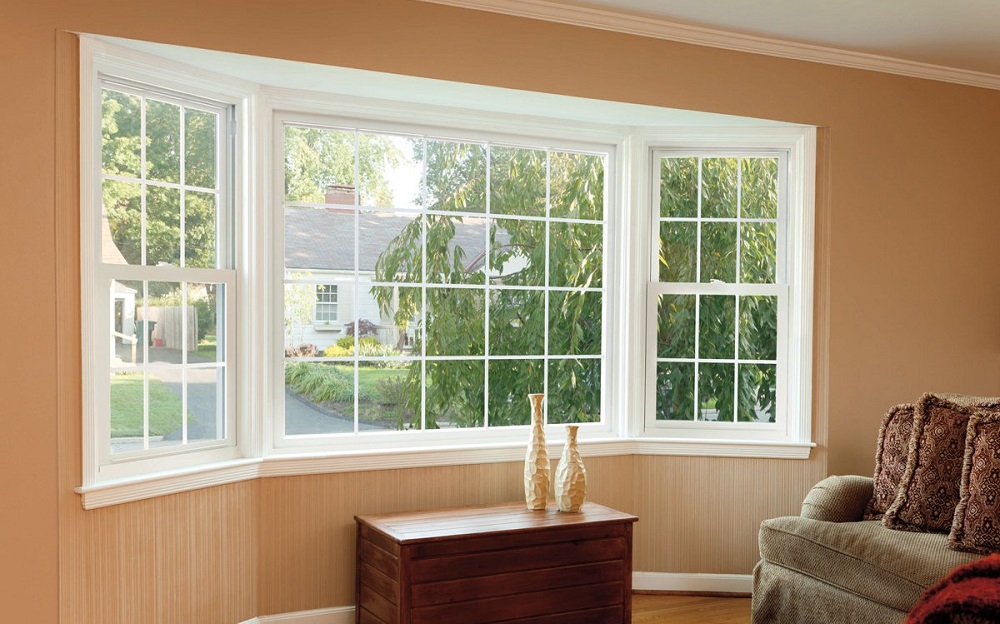Home improvement projects are exciting yet daunting, especially when discussing installations that can significantly impact your home’s value and energy efficiency. One such project is window installation. Understanding the various cost factors and how to budget for new windows can be a game-changer for homeowners.
In this comprehensive guide, we’ll delve into everything you need to know about the cost of window installation. From breaking down the types of windows to offering budgeting tips, we’ve got you covered.
Understanding Different Types of Windows
- Single-Hung Windows: These are the most basic and cost-effective windows, where only the bottom sash is operational.
- Double-Hung Windows: Both upper and lower sashes can be moved. They are versatile but slightly more expensive.
- Casement Windows: These windows are hinged and open outward. They are excellent for ventilation.
- Slider Windows: These windows slide horizontally and are ideal for wide openings.
- Vinyl Windows: These are highly energy-efficient and virtually maintenance-free but are generally more expensive.
- Custom Windows: These are tailored to your specific needs, shapes, and sizes, naturally making them more costly.
Key Cost Factors for Windows Installation
Material
The material you choose can significantly affect your costs. Wood windows offer a timeless aesthetic, but they require regular maintenance. Vinyl windows, on the other hand, are durable and require less upkeep, which can make them more cost-effective in the long run.
Labor
DIY window installation can save you money, but it’s risky if you don’t have the right skills. Professional installation ensures your windows are correctly fitted, which is crucial for long-term performance and energy efficiency.
Size and Type
The bigger the window, the higher the cost. Furthermore, specialty windows like bay or custom windows will add to the expense due to their complexity and unique sizing.
Location
Installation costs can vary based on your geographical location. Rates are generally higher in metropolitan areas.
Budgeting Tips for Homeowners
- Get Multiple Quotes: Don’t settle for the first quote you receive. Shop around to find the best deal.
- Consider Long-term Benefits: Paying a little extra upfront can save you money in the long run, especially regarding energy efficiency.
- Seasonal Discounts: Off-season installation can be cheaper as contractors seek work.
- Finance Wisely: Look into no-interest financing options or consider taking out a home improvement loan.
- DIY for Small Tasks: You can take on tasks like removing old windows to save on labor costs, but only if you’re confident in your abilities.
Additional Considerations for a Smooth Window Installation Project
Before you embark on this transformative journey, there are other essential considerations to remember.
Permits and Regulations
In some areas, local building codes and homeowner association (HOA) rules may dictate the types of windows you can install. Make sure to check these before you finalize your decision. Obtaining necessary permits may add to your costs but are essential for compliance and potential resale value.
Energy Efficiency
Energy-efficient windows may have a higher upfront cost but can save you money on heating and cooling bills in the long run. Check for an ENERGY STAR rating and consider features like Low-E glass, which minimizes the transfer of heat and UV rays.
Warranties and Guarantees
Always ask about the windows’ warranties and the installation process. A good warranty can protect you from potential defects and ensure you won’t be shouldering unexpected costs shortly after your window installation.
Aesthetic and Resale Value
Windows are not just functional but also a significant aesthetic component of your home. Choose a style that complements your home’s architecture to enhance curb appeal. Higher-quality windows can also increase your property’s resale value, offering a good return on investment.
Maintenance
Some types of windows require more maintenance than others. Wood windows must be repainted and checked for rot regularly, whereas vinyl windows require less upkeep. Ensure you’re comfortable with the maintenance required for your chosen window type.
Soundproofing
If you live in a noisy area, consider windows with good soundproofing qualities. These can be more expensive but could provide much-needed peace in your home.
Wrapping It Up
Replacing or installing new windows is a significant investment, and planning carefully is crucial to get the most out of your money. Whether you’re opting for vinyl windows, traditional styles, or custom windows, knowing what to consider can help you make a wise decision.
Understanding the full spectrum of costs, from materials and labor to additional features and permits, will put you in a solid position to budget effectively. So take your time, do your research, and don’t hesitate to seek professional advice to ensure your window installation project is a resounding success.



